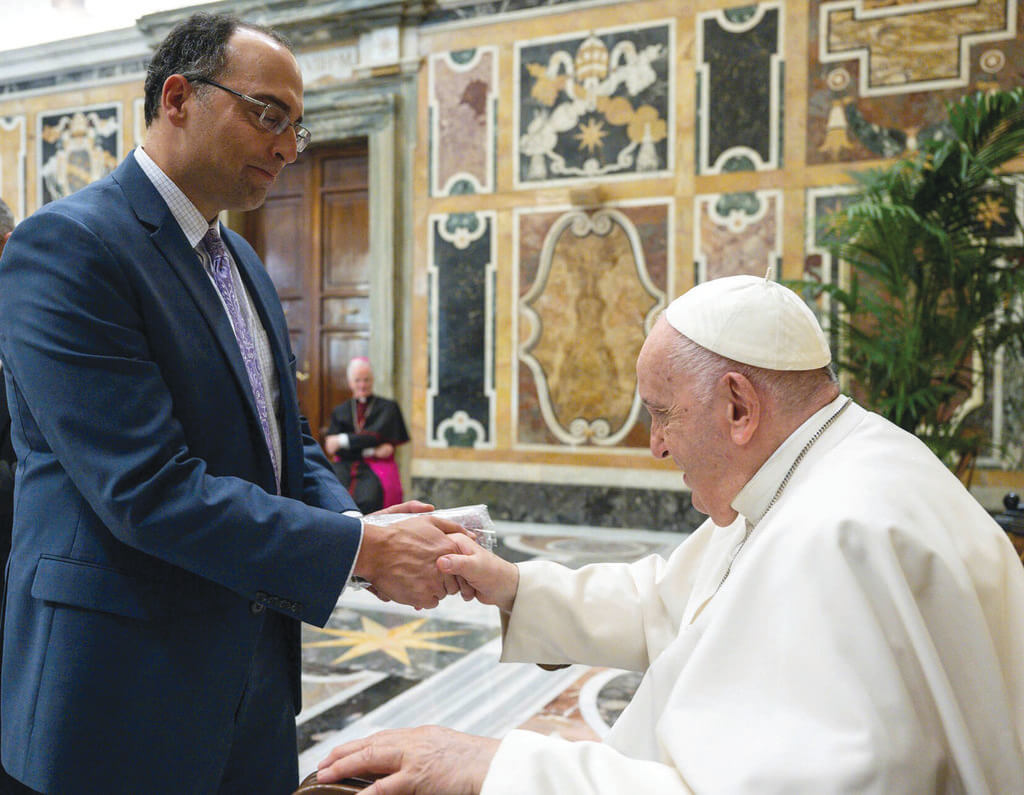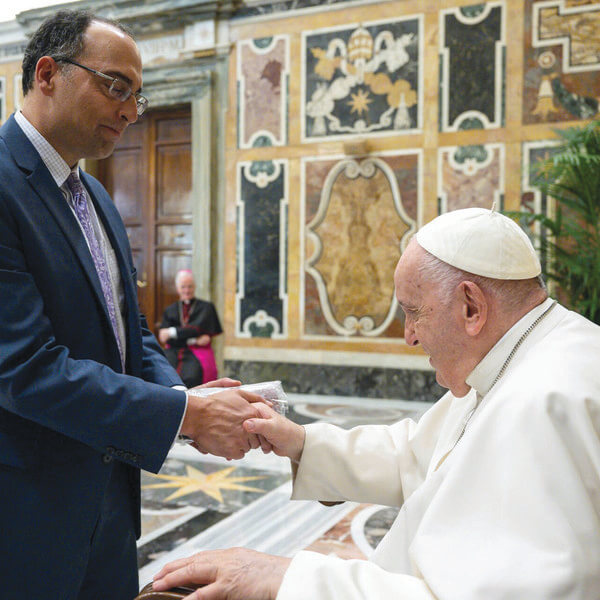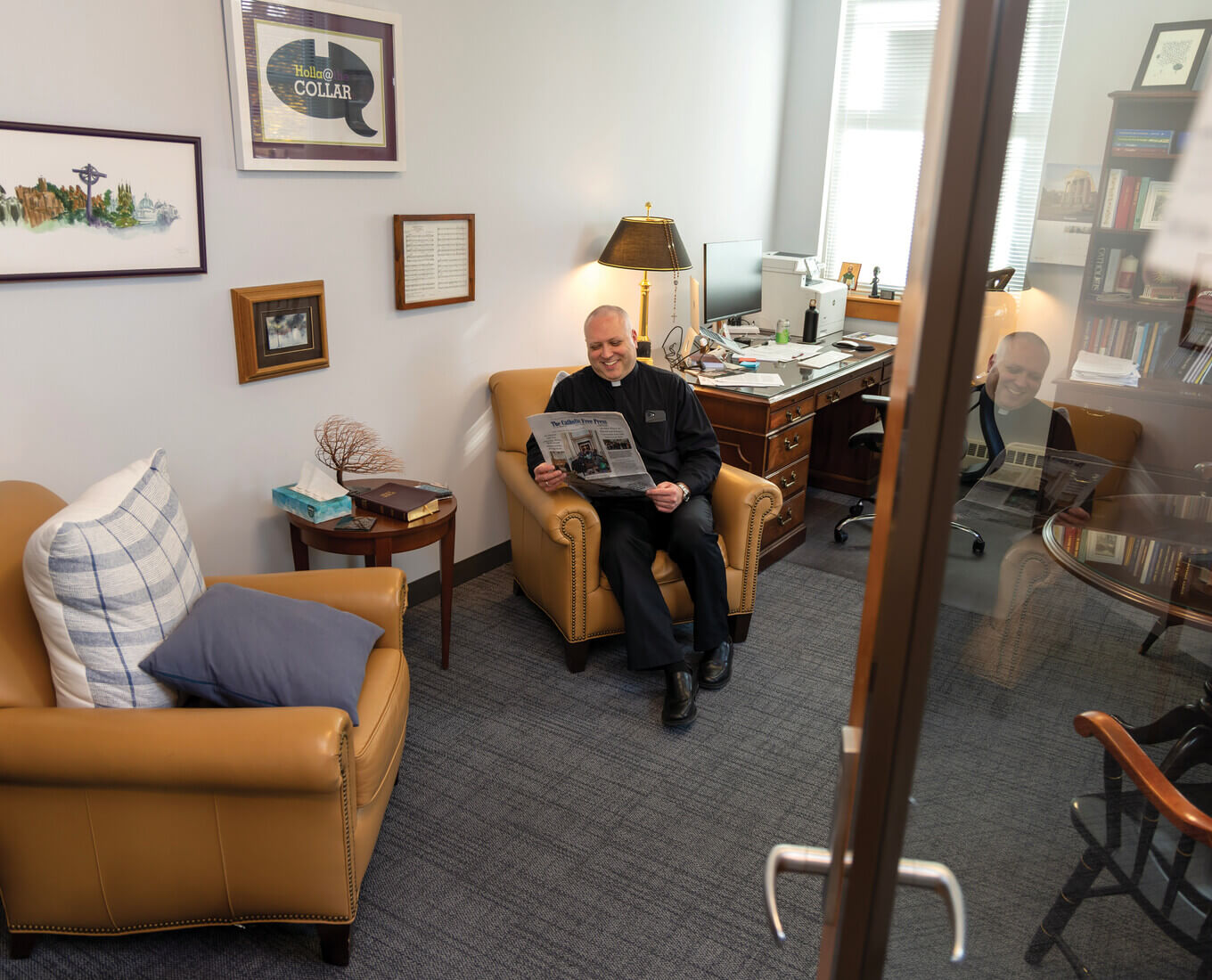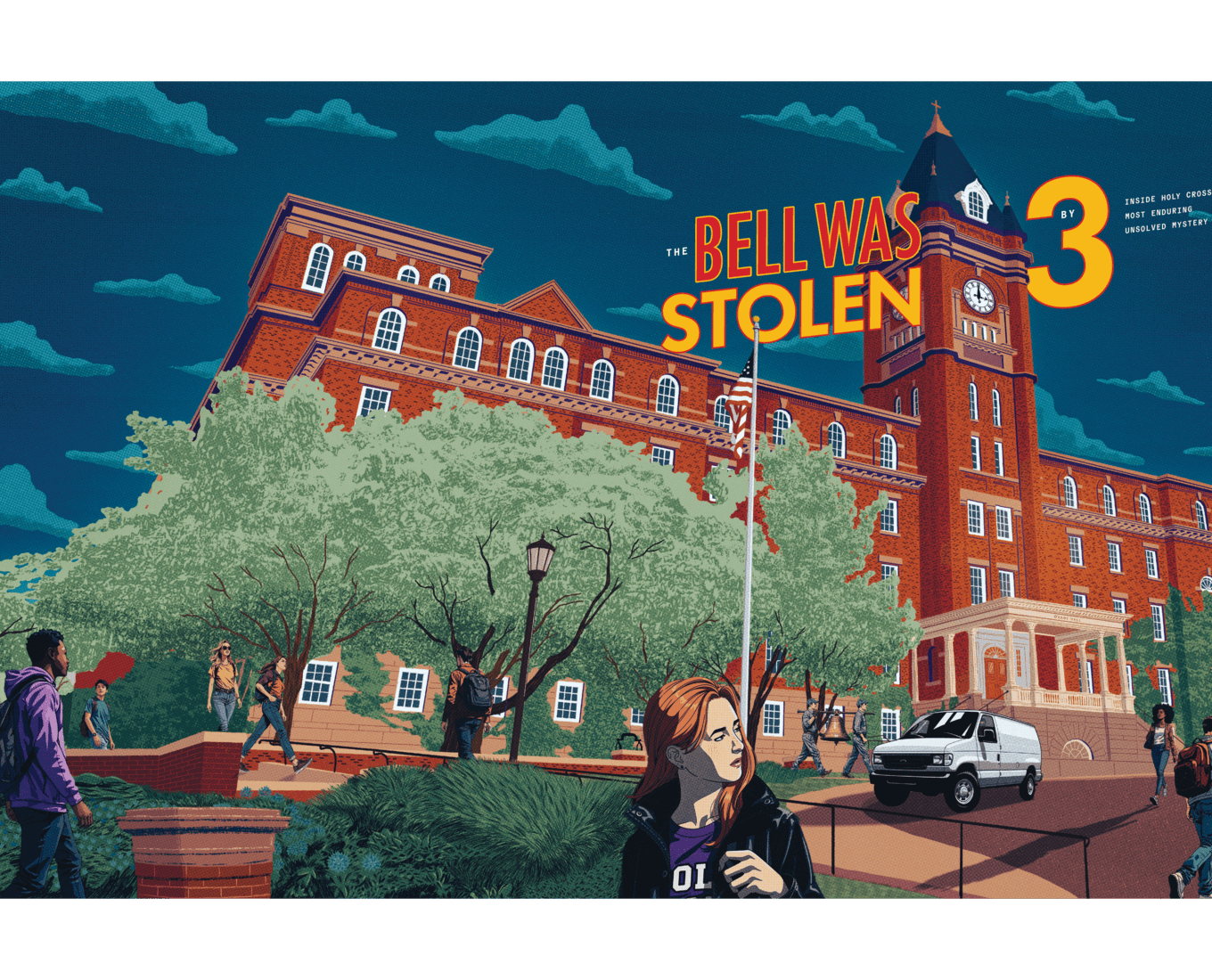“I’d prefer a Popener,” my friend Dave said. I’d asked him if he’d like a rosary to be blessed by Pope Francis, but he had other ideas. He already had a collection of bottle openers that feature a gleaming image of past pontiffs and needed Francis to complete his set. Who was I to argue with him?
It all happened very quickly. I’d been invited to a May 2023 conference in Rome, dauntingly titled: “The Global Aesthetics of the Catholic Imagination.” Just how I’d gotten on the radar of Catholic literature is still something of a wonder to me, a person who has wrestled with his cradle Catholic faith and resisted its claims on my writing. All that changed when I received from America Magazine the inaugural George W. Hunt, S.J., Prize for Excellence in Journalism, Arts & Letters in 2015.
Despite going to Jesuit high school and college, and now teaching at a Jesuit university for two decades, I felt itchy about thinking of myself as a Catholic writer. Sure, I was (mostly) Catholic, but a Catholic writer? No priests or nuns have appeared in anything I’ve written. My poems are remarkably lacking in piety. But after going to conferences on the Catholic Imagination in New York, Chicago and Dallas, and meeting fellow Catholic writers, I finally realized — to quote Bruce Springsteen, another Catholic writer — I’m still part of the team.
Fast forward to Rome. Even in May, I sweated through two shirts a day, hoofing between the hotel and the conference venue and back, soaking in the glory of 70 global Catholic writers at Villa Malta, headquarters of the Jesuit-published periodical “La Civiltà Cattolica (Catholic Civilization)”. What a delight to discover, on panel after panel, a Catholic Church that spanned the planet. Not only the Alice McDermotts and Phil Klays, but also African Catholic writers from Uganda and Nigeria, like the dazzling Chika Unigwe. A panel of Indian Catholic Writers. (The Italians, sì, certo!) Did I mention the cameo of one Martin Scorsese, whose Catholicism is now indisputable after his third religious and second Catholic-centered film, “Silence,” was screened in the Vatican a few years ago? Of course, but who knew?!?
At the last moment, before leaving the States, I got the email: We were to have an audience with Pope Francis! I never thought I’d meet a pope — and to be honest, I had no real desire to, either. I distrust celebrity and authoritarian institutional structures, so the pope already had two strikes against him. I’d sided with Sinéad O’Connor during the great papal photo tearing on “Saturday Night Live” in the 1990s. After the sex abuse scandals, I was white-knuckling on the ledge of Catholic belief.

But ever since I read Pope Francis’ first interview, I was drawn in. When asked by journalist Rev. Antonio Spadaro, S.J., to describe himself, the former Jorge Mario Bergoglio replied: “I do not know what might be the most fitting description ... I am a sinner. This is the most accurate definition. It is not a figure of speech, a literary genre. I am a sinner.” He continued: “Yes, but the best summary, the one that comes more from the inside and I feel most true is this: I am a sinner whom the Lord has looked upon.” I don’t know why it moved me so much. To this day, I can’t read these words aloud without tears coming to my eyes. It didn’t seem like the lacerating self-hatred that occasionally dogged my own sense of the faith. It was just frank and open humility. His humanness seemed different to me from previous popes that I’ve seen, waving distantly from balconies and popemobiles.
Most of my adult life, I’ve fled from papal encyclicals, as if I could be trapped in its rationalist webs and wrapped up for future theological devouring. But when I read “Laudato si' (Praised be)” I saw in his writing an openness, an imagination that was big enough to span both theological reason and something of the grit of human experience with nature. A few years later, “Fratelli Tutti (All Brothers)” sealed the deal. A longtime peace advocate, I read with delight when Pope Francis reminded the faithful that “Everyone has a fundamental role to play in a single great creative project: to write a new page of history, a page full of hope, peace and reconciliation.” And, moreover, that “there is also an ‘art’ of peace that involves us all.”
As the conference wore on, the final day approached: the audience with the pope! We gathered early outside the gates of the Vatican, awaiting our contact to bring us through. Suddenly I remembered I wanted to buy something to have blessed by the pope, and sprinted over to a tourist shop a stone’s throw away, sweeping up all the rosaries I could find. And — I had not forgotten Dave and his request — some Popeners.
We were brought through the gates and, shockingly, very little security, into the Vatican. Everything was grandiose, stony and designed to awe. It succeeded on all accounts, even for this skeptical democrat. We gathered in the Clementine Hall to wait for him. I looked around, more like a country bumpkin than myself to be. Beauty does that to people. From floor to ceiling, the room was entirely covered in frescoes. It is the most tatted room that I’ve ever been in. We were all abuzz, like little kids, trying not to be overwhelmed by the moment. I asked my friend Liam Callanan what he planned to say to the pope. He shrugged his shoulders. When the side door opened, a hush fell over us.
As Pope Francis hobbled into the room, my first thought was: Oh, he’s human. He beelined straight for Scorsese, well, as much as an 80-something who would have hernia surgery the next day can beeline — and they shook hands and embraced. It was against the usual protocol, in which the pope takes his seat first. I would have done the same! It’s Scorsese!
After his embraces, he settled into his seat and addressed the group in Italian. We’d been given an English translation, but even though I know very little Italian, I could hear that he improvised a little — enough so that the official transcript varied from the draft we’d received.
His address to our group was stirring and beautiful. Literature, he said, is a thorn in the heart that causes us to contemplate and sets us on a journey. It’s a line that I’ve come to quote, again and again, when I recall that day, when I’m teaching or when I’m just trying to remind myself of the work ahead.
He talked about the importance of writers and literature to his own faith journey, and to our Catholic tradition. It was shocking to learn, for example, that Dostoyevsky’s splenetic and existential “Notes From Underground” is perhaps his favorite work. It surprised me because the narrator is alienated, grouchy and angry at the world. He’s no saint, and he’s not even a good person. But he’s so human, and so disappointed at his society. The story is a clear-eyed mirror of the problem of living in the modern age.


